
Google I/O 2023 must be just around the corner, as the company has launched a new “input/output” puzzle that should reveal the date and location for this year’s event.
History of Google I/O
For over a decade, the Google I/O developer conference has served as the showcase of the company’s latest technology and a preview of what’s to come. From the latest enhancements to Android and Wear OS to flashy, impractical tech demos like Assistant Duplex, the I/O keynote is often chock-full of the year’s biggest Google news.
Typically, Google I/O takes place in the first half of May, often at the Shoreline Amphitheatre near Google’s campus in Mountain View, CA. That said, COVID-19 has impacted the past few years of the conference, leading to the cancellation of the 2020 event and digital-only events in 2021 and 2022.
Google I/O 2023 puzzle intro
Today, Google has given us our first teaser of what to expect from I/O 2023, by releasing a new web puzzle. In years past, the final solution to the puzzle reveals the date and location of the next Google I/O conference, and in some previous instances, the first person to solve the complex puzzle received a free ticket to the event.
This year, the company has taken the I/O name quite literally by launching a puzzle built around input and output (often shortened to “I/O.”) Moreover, rather than solving this alone, it seems we’ll need to all work together to find a “collective” solution.
The 9to5Google team — as well as many others across Twitter, Discord, and Reddit — is currently working to solve the I/O 2023 puzzle. We’ll be keeping this page updated, below, as we progress.
Google I/O 2023 puzzle progress
Hello, again, world.
To begin, create a pattern of inputs to inform the collective output.
From the initial page, there are options to either “Start” or “Observe.” By starting, you’re able to create some of your own “input” for the puzzle, while choosing to observe lets you view the “global progress.” You can also quickly toggle between these two views, using buttons on the left-hand side.
From the input tab, you’re given six tiles that you can slide upward or downward in the list. Depending on where you’ve dragged them, the puzzle will automatically group or ungroup the tiles. Each tile is marked with a set of six dots which are either filled or unfilled, which implies binary could be important to the puzzle.
Hovering over the left-hand side of each tile reveals a colorful “Open” button. The variety of puzzle you’ll find seems to vary, but one constant is the availability of a much-needed “Clue” button in the bottom-right corner.
In some instances clicking this brings you to a grid of numbers. From here, you’re able to slide the rows and columns, which you’ll presumably need to do in a particular way to make progress.
Select a column to shift its contents up or down, or select a row to shift its contents left or right. Follow the shift instructions described by the clue. Pay close attention to the order.
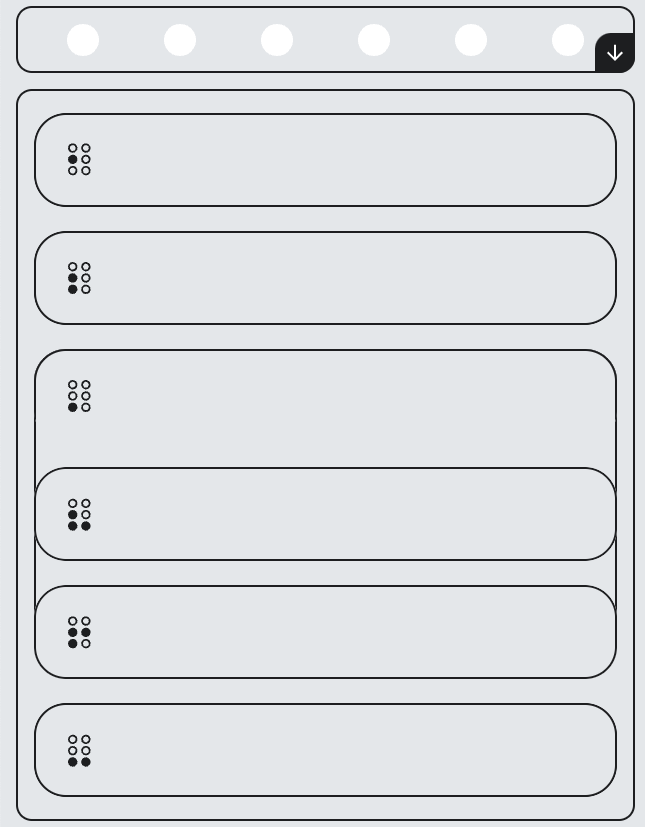
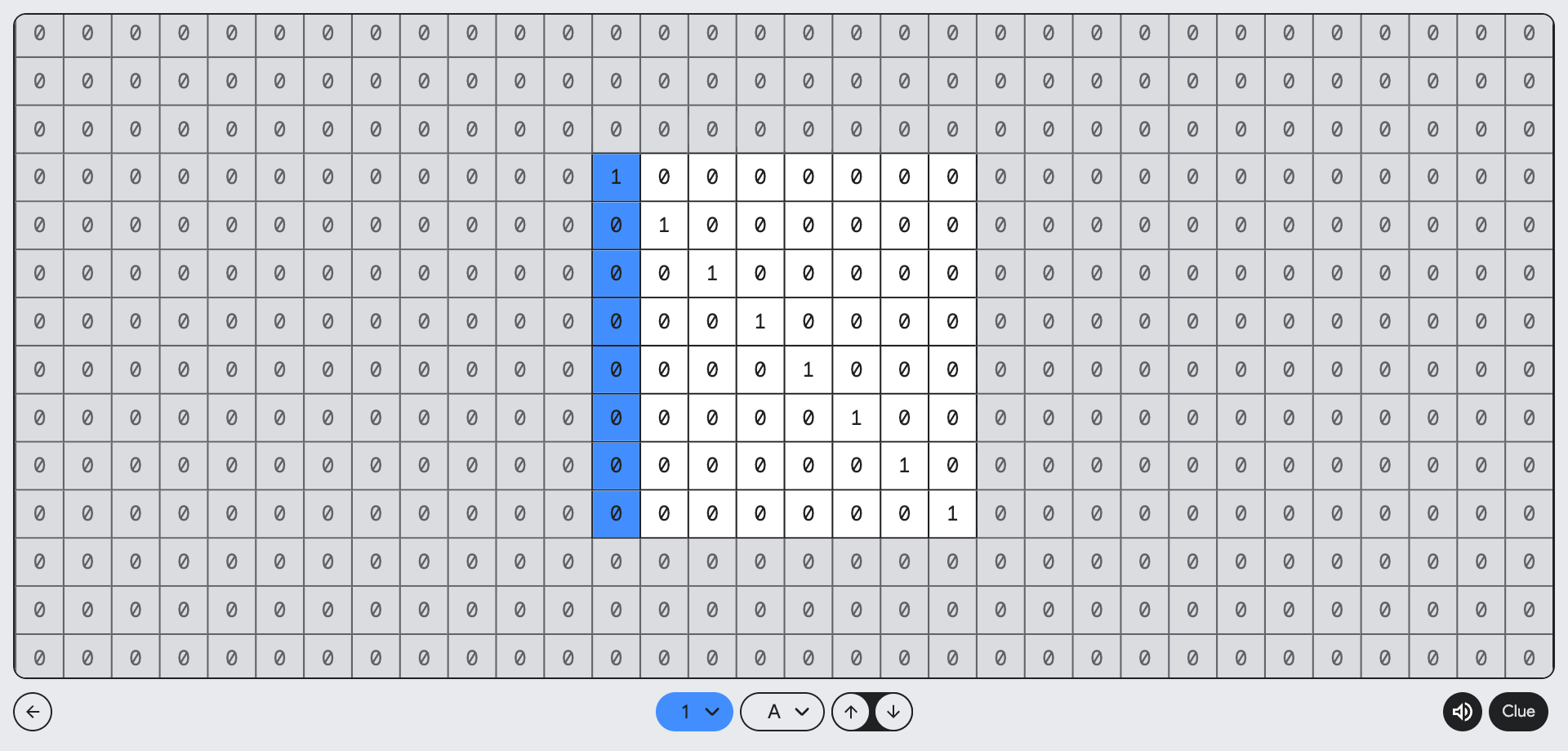
‘Input 1.0’ solution
In another example — “Puzzle 1” — clicking through reveals a series of toggle switches, which enable or disable the appearance of a color. Paired with this is a color-filled poetic clue that seems to indicate which switches should be enabled.
Blue before red,
Yellow after green,
Where that leaves grey
Is yet to be seen.
Notably, these toggles appear to be paired off into groups of two, meaning only one of each pair can be enabled. From top to bottom, these pairs are:
- Blue & Yellow
- Red & Green
- Grey & Green
- Red & Yellow
- Blue & Grey
Following the pattern laid out by the poem clue, we know to switch on toggles: 1, 3, 6, 8, and 10 to reach the final solution, most of which can be seen below.
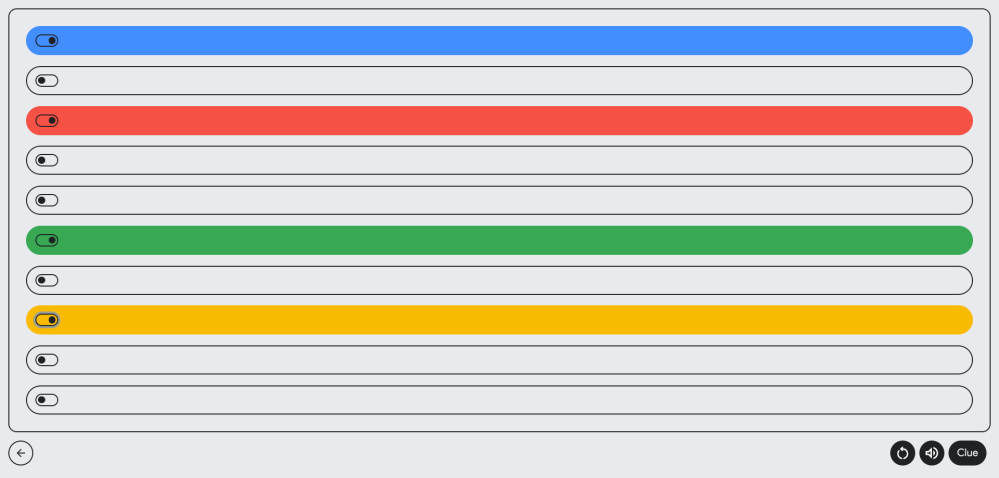
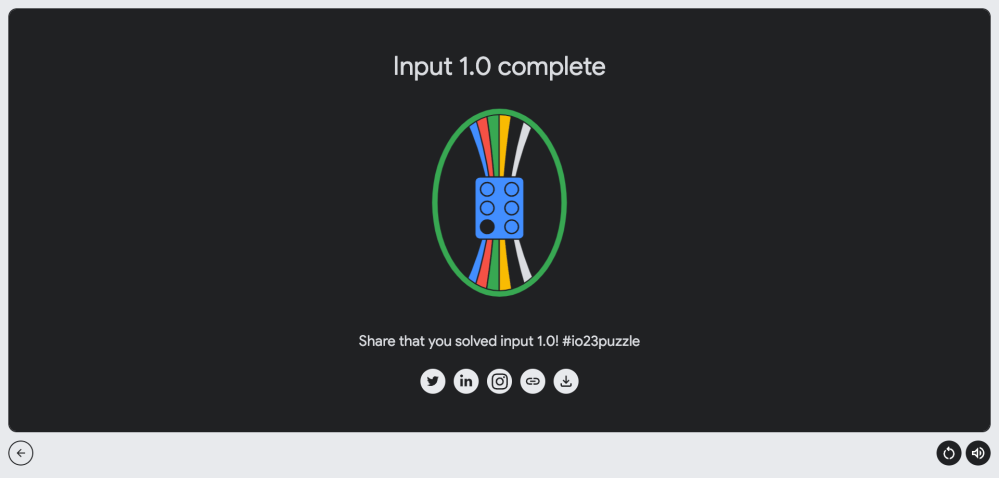
‘Input 2.0’ solution
Our first binary slider puzzle of the Google I/O 2023 teaser, Input 2.0 offers an 8×8 grid, primarily filled with 0s. Notably, there are eight 1s in the puzzle, arranged in a diagonal line. Our clue for this puzzle is a series of arrows, which we’ve reproduced below:
↓↓↓↓
→
←
↓↓↓
→←
→→
↑↑↑
←←
As there are eight 1s in the puzzle and eight lines of arrows, we can assume that we must follow one line of instructions for each 1 on the board. So take the upper-leftmost 1 and move it down four spaces. Take the next 1 in the line and move it to the right one space. The final solution will look a bit like the image below, you’ll just need to slide the bottom row two spaces to the left.
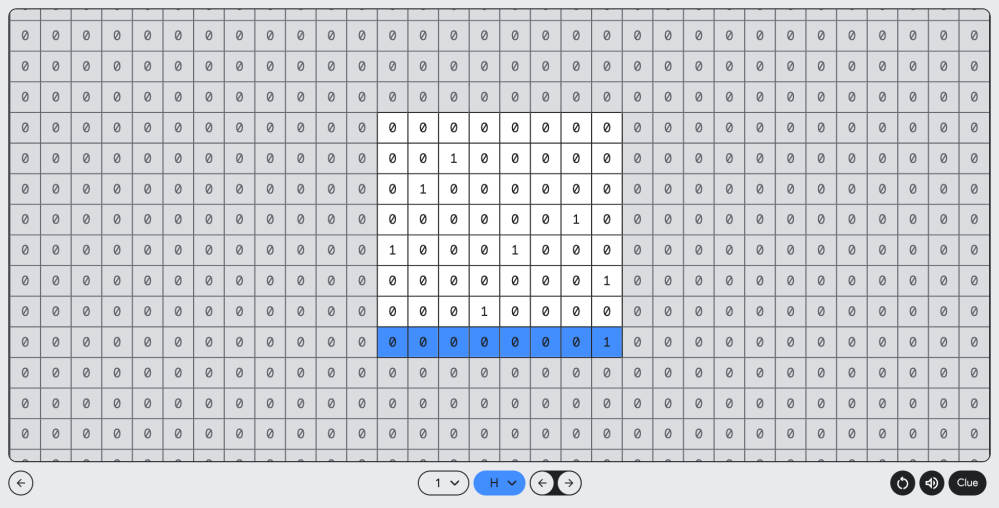
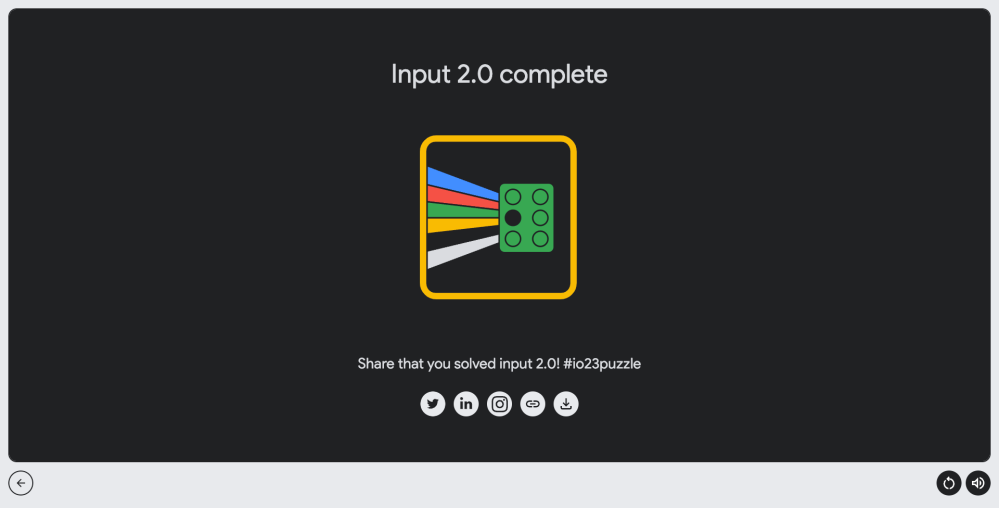
‘Input 3.0’ solution
Following a similar pattern, the puzzle titled “Input 4.0” is also a series of toggle switches. The only hint that we’re given here is that “One is one, two is three.” There are five toggles in total; the uppermost and lowermost ones are shaded grey when enabled and the middle ones are shaded to be white.
The solution is very straightforward here, as you simply need to toggle the topmost switch first and the third switch second. “One is one, two is three,” after all.
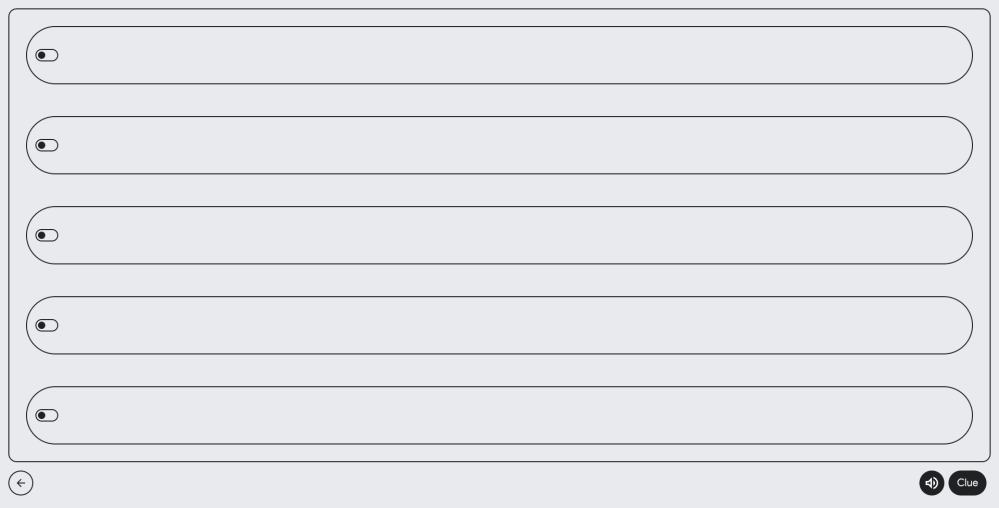
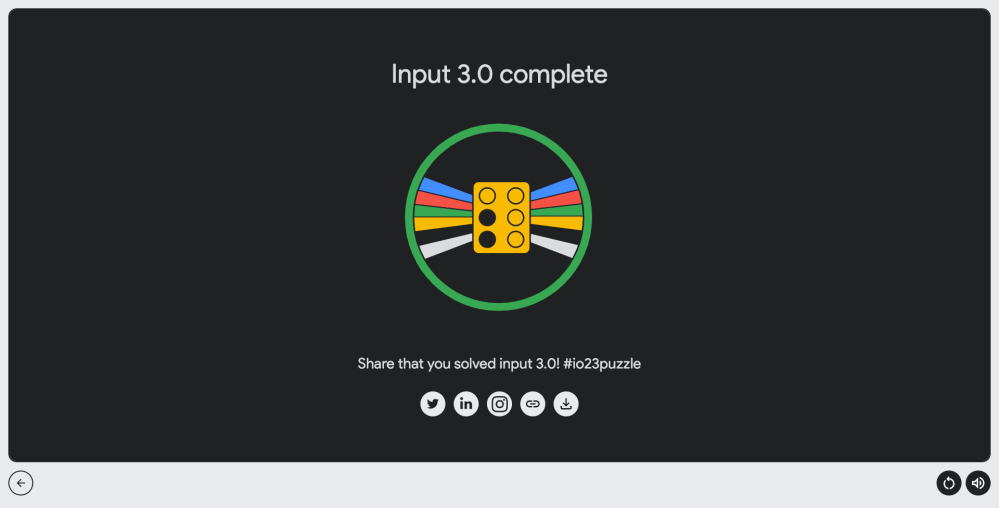
‘Input 3.2’ solution
For our next slider-style clue, we’re given a series of numerals/letters, arrows, and numbers. We can quickly deduce that these must be instructions to move particular rows (letters) or columns (numerals) in a specific direction (the arrow) by a certain amount (the number).
M ← 1 K ← 2 F → 3
N ← 1 L ← 2 G → 3
O ← 1 A → 3 2 ↓ 5
7 ↑ 2 B → 3 3 ↓ 6
H ← 2 C → 3 8 ↑ 6
I ← 2 D → 3 1 ↓ 7
J ← 2 E → 3
However, simply following these instructions in the order shown doesn’t solve the puzzle. Instead, you’ll need to re-arrange the instructions, first in alphabetical order, then in numeric order. So the final instructions look like this:
- A → 3
- B → 3
- C → 3
- D → 3
- E → 3
- F → 3
- G → 3
- H ← 2
- I ← 2
- J ← 2
- K ← 2
- L ← 2
- M ← 1
- N ← 1
- O ← 1
- 1 ↓ 7
- 2 ↓ 5
- 3 ↓ 6
- 7 ↑ 2
- 8 ↑ 6
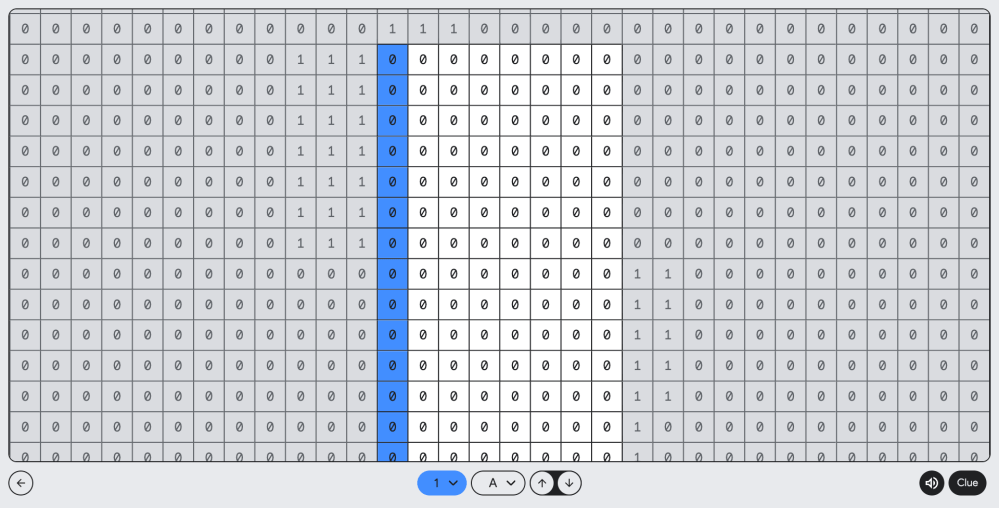
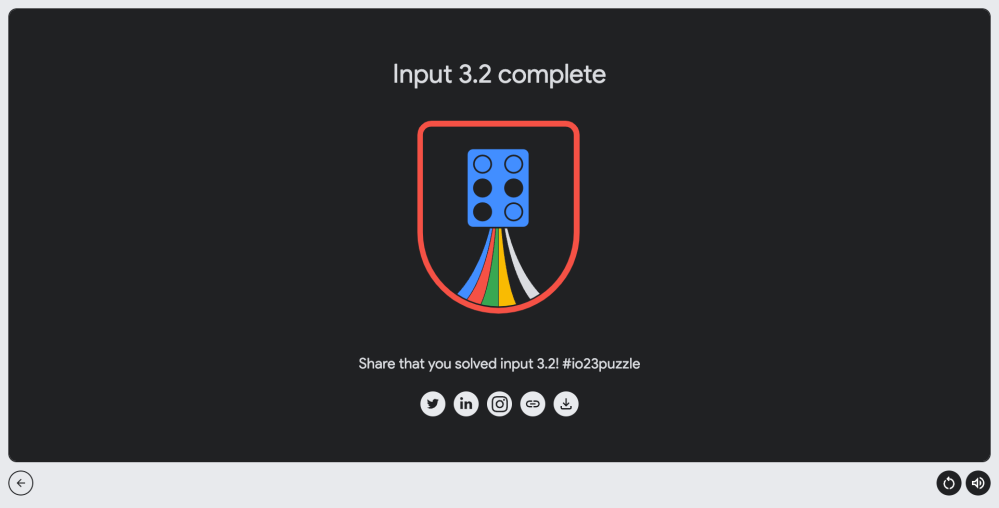
‘Input 3.1’ solution
Forgive us for having these a bit out of order in our post, but Input 3.1 works almost exactly like its sibling above. However, this time you’ll need to rearrange the instructions to do things in numeric order first (handling the columns), followed by alphabetical order (handling the rows). This rearranged order is hinted at by the clue “Up or down, left or right,” compared to the other’s reversed clue “Left or right, up or down.”
Here are the final instructions you’ll need for this particular puzzle:
- 3 ↓ 5
- 4 ↑ 5
- 6 ↑ 3
- 7 ↓ 10
- 8 ↑ 3
- B ← 6
- C ← 6
- D → 5
- E → 5
- F ← 6
- G ← 6
- H ← 6
- I ← 6
- J ← 6
- K → 4
- L → 4
- M ← 5
- N ← 5
Input 1.1 solution
The final puzzle in this series of binary grids is one that has left us stumped for the longest, and is (for now) the least-completed of the individual Google I/O puzzles, according to the global progress indicator. Thanks to tips from Simon K and Christian, we’ve now got the final answer to this tricky puzzle.
Here, we’re presented with a 32×8 grid, in which each column has a single 1. The only clue we’re given is that “Third times are a charm (±1).” Here the idea of “plus or minus 1” (±1) needs to be taken quite literally, in combination with “third times.”
Simply put, you’ll need to weave your way through the columns, moving every third column up or down, in sequence. Like so:
- 3 ↑ 1
- 6 ↓ 1
- 9 ↑ 1
- 12 ↓ 1
- 15 ↑ 1
- 18 ↓ 1
- 21 ↑ 1
- 24 ↓ 1
- 27 ↑ 1
- 30 ↓ 1
Final puzzle solution
Lastly, with all six of those individual puzzles solved, you now need to drag around the tiles to sort them in the correct order. To do that, take a look at the domino-like grid at the far-left of each tile.
Think of these like representations of binary, with outlined circles being 0 and filled ones being 1. You can read them from left-to-right, bottom-to-top, as hinted at in this tweet. So the final solution is what you see below. However, the date of the Google I/O conference will not be revealed until more people have had a chance to solve the puzzle. By getting through this guide, you’ve helped move us all one step closer to the date being unlocked!
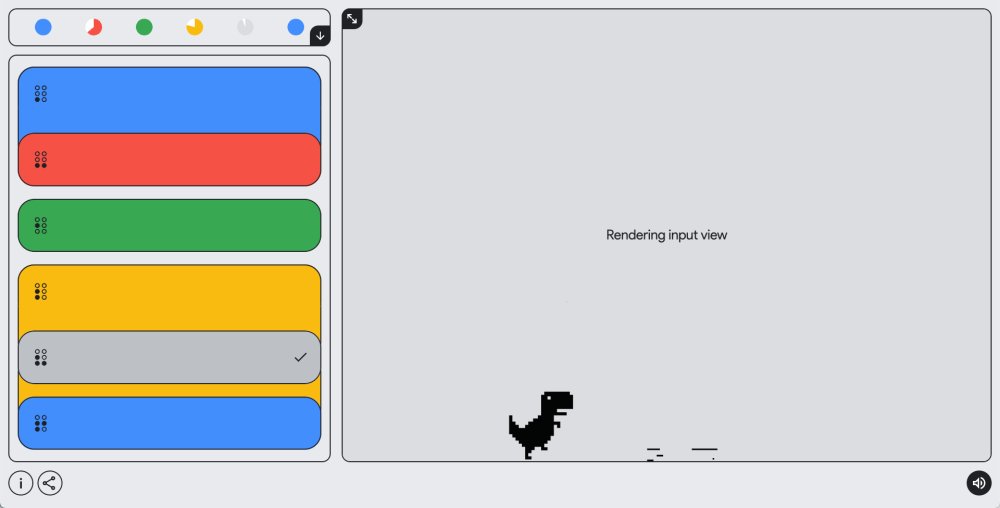
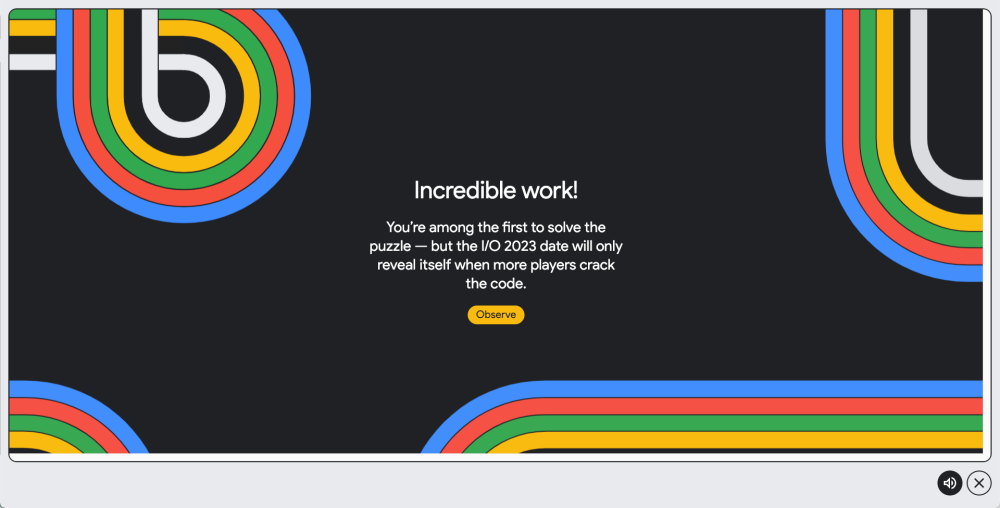
Updating...
Add 9to5Google to your Google News feed.
google-news
Author: Kyle Bradshaw
Source: 9TO5Google



